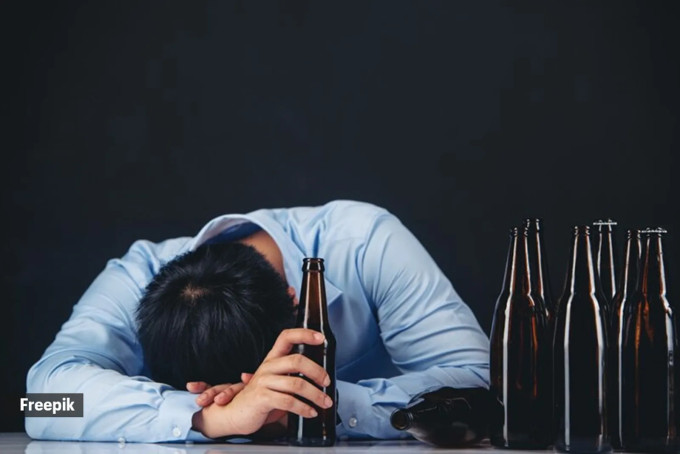Govinda’s wife, Sunita Ahuja, reveals she secretly got baptised as a child out of curiosity about alcohol, stressing the importance of vigilant parenting
Sunita Ahuja, wife of Bollywood actor Govinda, shared a humorous anecdote about converting to Christianity while in school solely to be able to drink wine.
Appearing on Time Out with Ankit YouTube channel, she spoke about her background mentioning that she was raised in a half-Punjabi, half-Nepali household and got baptised when she started school. However, this was done in secret because she had heard that wine was offered during mass and was curious to try alcohol.

She explained, “I was born in Bandra. I’ve been baptised. I was in a Christian school, and all my friends were Christians. As a child, I had heard that Jesus’ blood is wine. And I thought to myself, ‘Wine means alcohol’. I was always very cunning. There’s no harm in having a drink, is there? Just to have some wine, I got myself baptised. I follow Christianity, I go to church every Saturday.”
While her story might come off as light-hearted, it taps into a larger issue of childhood curiosity and experimentation with substances like alcohol. Adolescents often explore behaviours that adults label as risky, driven by curiosity, peer pressure, or simply the allure of the forbidden.
However, this curiosity can lead to serious consequences if not properly guided. For parents, this raises the question: How can they strike the right balance between being vigilant and fostering open, honest communication?
Malika Chandra, psychotherapist at MC Psychotherapy, tells indianexpress.com, “Children are naturally more curious to try new substances and experience new things. Since alcohol is commonly used by adults and out of the child’s reach, this may increase their curiosity further, coupled with a sense of rebellion that is more often found in those early years of self-exploration.”
She continues, “Alcohol may also be more likely to be tried by children under peer pressure as well as children that face stress and do not have better-coping mechanisms. Finally, children learn a lot by modelling the behaviour of their parents. If their parents or adults around them drink a lot, they may be more inclined to do so themselves.”
How can parents recognise early signs that their child might be experimenting with risky behaviours?
Chadra explains that parents can recognise early signs “by noticing sudden changes in the child’s behaviour.” She says that this could include “sudden mood swings, increased sensitivity, withdrawal from family activities, changes in sleep patterns, appetite changes, sudden decline in grades, cognitive dysfunction, financial changes and defensiveness.”
 In terms of psychology, consuming alcohol may open up the pathway for unhealthy coping. (Source: Freepik)
In terms of psychology, consuming alcohol may open up the pathway for unhealthy coping. (Source: Freepik)
It is important to note that any of these changes could also be attributed to another kind of emotional disturbance, she stresses. “However, these early signs may be a cue for fostering a safe space where the child can discuss what they are going through or where further monitoring may be needed.”
Long-term risks of early exposure to substances like alcohol
There are many physiological changes that can have a permanent effect on the child’s developing brain, even if it’s just a one-time experience, mentions Chandra. “In terms of psychology, consuming alcohol may open up the pathway for unhealthy coping. Alcohol provides temporary relief from unpleasant emotions such as anxiety. At the same time, it increases these unpleasant emotions later, and decreases a person’s propensity to be able to regulate the same emotions on their own.”
For a developing child, this may be a significant event which can leave a deep impact on developing long term skills for coping. They may later find other unhealthy ways to cope and at the same time become inept at finding the internal resources to cope in healthy ways.
How should parents approach conversations about harmful substances?
Chandra says the following steps are crucial:
– Begin conversations early, before the child is likely to encounter the drugs, so that they are better prepared.
– Create a safe space for them to share. Avoid harsh reactions or punishments when they do share. This may seem difficult, but there is no point if they do not come and share information next time. In fact, secrecy may further increase the risk that they get into trouble with drugs.
– Help them understand the ill effects of alcohol while validating their natural appeal towards it. This encourages them to be able to think and feel internal cognitive dissonance while making healthier choices.
– Discuss peer pressure and help them prepare for it.
– Model the behaviour you wish to see them pursue.
📣 For more lifestyle news, click here to join our WhatsApp Channel and also follow us on Instagram
Disclaimer: The copyright of this article belongs to the original author. Reposting this article is solely for the purpose of information dissemination and does not constitute any investment advice. If there is any infringement, please contact us immediately. We will make corrections or deletions as necessary. Thank you.
